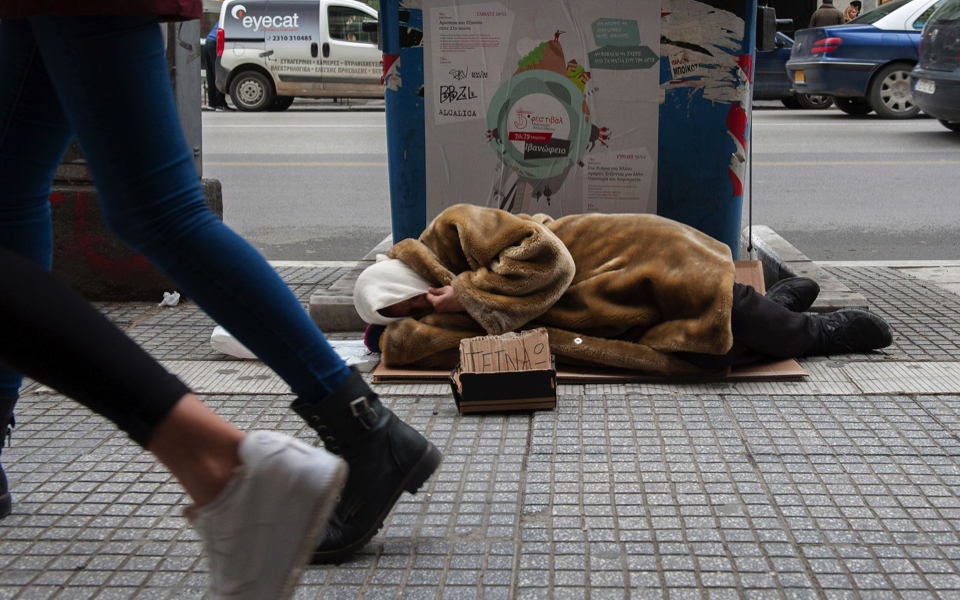Food banks are a crucial link in a lifesaving chain, says FEBA chief

“Food banks are structured like a regular company, except for the fact that they don’t have an office for paying salaries because almost everyone who works there is a volunteer,” explains the president of the European Federation of Food Banks (FEBA), Jacques Vandenschrik, in an interview with Kathimerini about the mounting challenges the continent’s 366 such organizations face.
Vandenschrik took over the federation’s helm in 2016 and transferred its headquarters from Paris to Brussels “so that we could be closer to the decision-making centers and raise public awareness.”
After spending years in Somalia with the European Development Fund and in South Africa where he also served as honorary consul, the Belgian ex-executive admits that he “knows what hunger means.”
He was in Athens recently for a conference organized by the Labor Ministry’s National Coordination Network on “Volunteerism and Food Waste,” where he presented the work FEBA is doing and its goals, stressing that with rising poverty rates in Europe, the federation is seeking more systematic cooperation between regional organizations.
“We work together on many different levels,” Vandenschrik says. “We meet annually, exchange know-how and good practices, carry out food collection campaigns at supermarkets (known as collects) on the same day in all the different countries, and we also organize food exchanges between members when the need arises.”
The federation’s biggest endeavor, which is currently under way, is to offer more support to countries with major food needs, such as Albania, FYROM, Malta and Slovenia.
On a European level, FEBA supports 38,175 food programs, which help a total of 7.5 million people. Thanks to Europe’s food banks, 3.3 million people are fed on a daily basis.
“Food banks represent a unique model,” says Vandenschrik, explaining that even though they work with volunteers they are very professional. He also stresses that they allow beneficiaries to get what they need without having any direct contact with the donors.
Food is collected and stored safely before it is distributed to shelters, food programs and nongovernmental organizations at a cost of just 1 euro for a volume of food worth from 8 to 50 euros. Transportation is the main cost incurred by food banks. At the same time, they cultivate a spirit of volunteerism and a new approach to food.
“Quality is more important than quantity to us,” says the FEBA chief, adding that he does not agree with the term “food waste.”
“We are not giving people food that was thrown away – quite the opposite: We make sure that surplus food is utilized in a socially and environmentally responsible manner,” he stresses.





